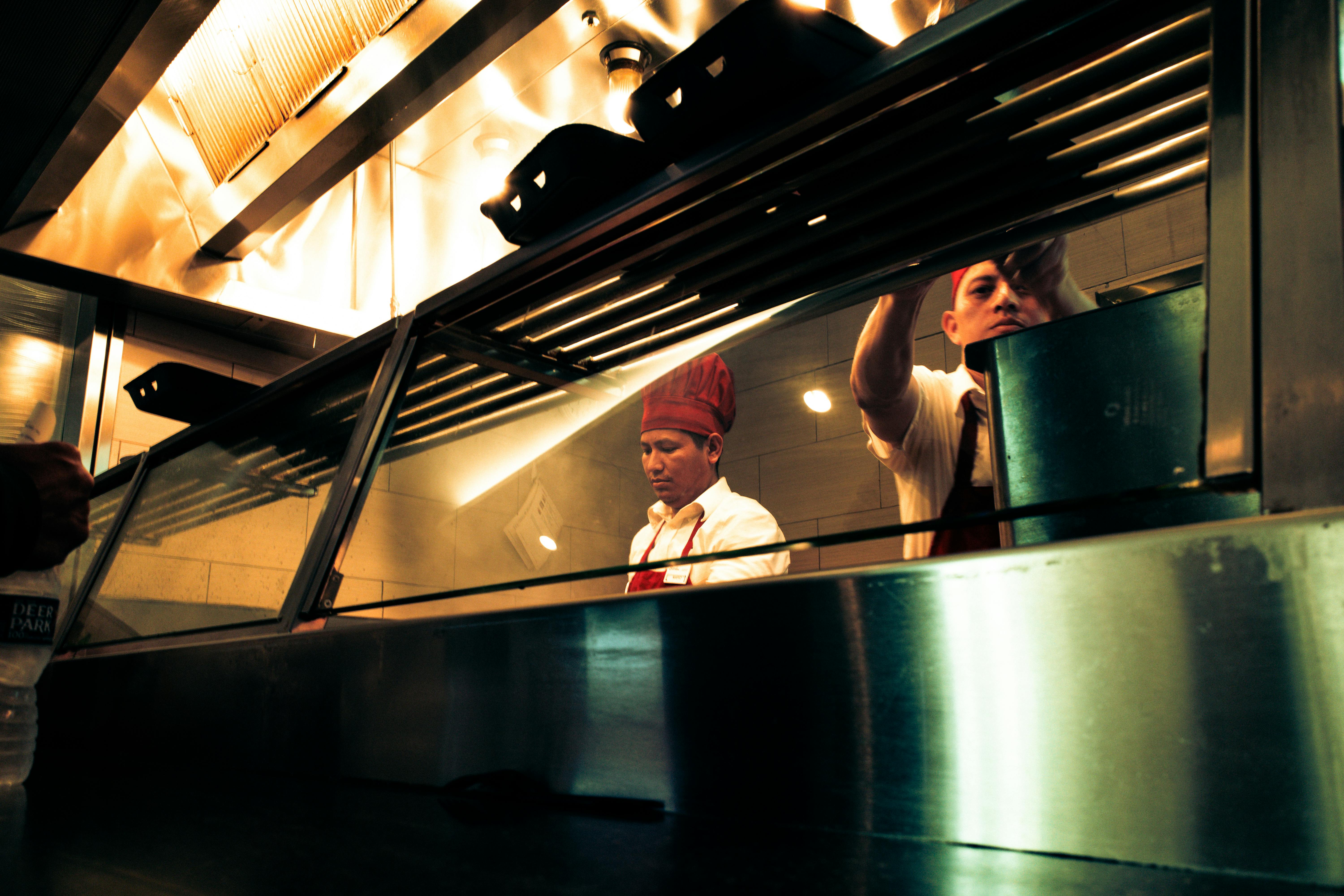Just for a moment I’d like you to imagine standing in your living room and you’re about to give it a new coat of paint.
There is no visible furniture, just a stepladder. There is absolutely nothing on the floor except twelve gallon cans of paint. All can lids have been removed and each can visibly displays its unique color. There is a bright red, a bright blue, a yellow, and four more containing all the remaining colors of the rainbow and five more of various colors – no two are alike.
The paints are of various consistency and texture. You have been given the challenge of making them all work together, forming several different colors to paint the room with.
There are only a couple of rules related to mixing the paints. The cans cannot be lifted and dumped into each other to make their different colors. The hoses allow the integration of the necessary pigments, etc. so you can get the exact color and consistency of paint you need.
Sometimes the paintings are pushed and other times they are thrown. A hose connects each can to each and every other can. Pulling deflates the hose, so all the pulling is done on multiple lengths of thick-walled hose that will not deflate. Each hose is also a different and unique color.
When the paints are pushed, the hose expands and we cannot have expansion because when we have expansion, the pressure is compensated by the volume and the desired color will not be obtained. To counter this, we placed another set of hoses, all different colors between all the cans. Now there are not a dozen hoses as one would expect to integrate the paints, but hundreds
When traction is involved, a small motor is required at the destination point on each can. However, when pushing is required, another small motor is placed in each fountain can.
Each motor is connected to a controller that may or may not be shared by other similar motors.
You are now up and ready to go to work painting the room. What you have just done is build a simple model that represents a typical ERP system and complete software with integration services.
It’s confusing?
Look across the room. A dozen or more cans, several dozen different hoses, each a different color. There are so many engines to access and all those nifty controllers.
But yes!
You can paint your room. Your system is fully integrated!
Now, I invite you to go to your kitchen where the furniture has also been removed, ready for you to paint it. The requirements here are also for several different colors, the exact same colors you just used to paint all the different walls in the first room.
On the contrary, on the floor there is only a can of paint. It looks white, but you can’t be absolutely sure.
However, this one can contain all the colors of all the ones you saw on the floor of your bedroom or living room. The difference is that all the colors have been mixed. Your eyes see what looks like white paint. You look at the wall and take a look at the specs, then dip your brush or roller in and start painting.
The brush or roller knows exactly which pigments to grab and in what proportions. As your brush or roller glides smoothly over the wall’s surface, the exact color stipulated in the specifications flows behind each pass.
You move to a different section of your kitchen and start painting again. You continue to use the exact same roller or brush that you were using just moments ago. As if by magic, this section of the wall becomes a completely different color, but the required color exactly according to the required specifications.
Now you have just seen the unERP model of the ERP system and software.
You have seen the difference!
You have just witnessed in your mind the incredible beauty of having a seamlessly integrated workflow, all in your own vivid colors!
Now that you’ve seen the difference, what colors would you like your next ERP system and software to appear in?
ERP system and software
